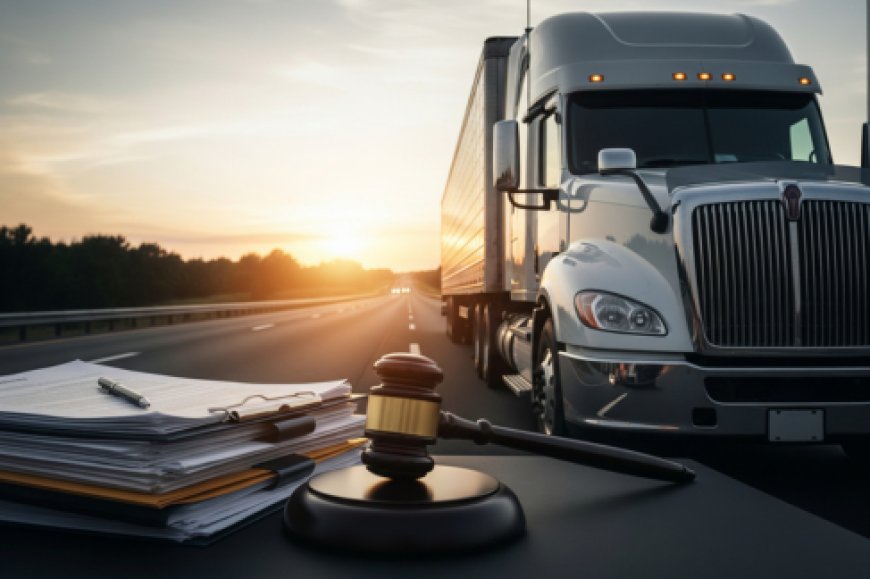Truck Accident Lawsuits: What You Need to Know
Truck accidents are often more devastating than other types of vehicular accidents, causing severe injuries, fatalities, and significant property damage. The legal process for filing a truck accident lawsuit can be complex due to the multiple parties involved and the regulations that govern commercial vehicles. If youve been injured in a truck accident, understanding the process of filing a lawsuit is essential to ensure you receive fair compensation. Heres a guide to help you navigate the key steps involved in a truck accident lawsuit.
1. What is a Truck Accident Lawsuit?
A truck accident lawsuit is a legal action taken by someone who has suffered injury or property damage in a truck accident. This lawsuit holds the responsible parties accountable, which can include the truck driver, trucking company, or even third parties like manufacturers if faulty parts contributed to the accident. Truck accident lawsuits typically seek compensation for medical bills, lost wages, pain and suffering, and property damage.
2. When Should You File a Truck Accident Lawsuit?
Not every truck accident case requires a lawsuit, but there are situations where it may become necessary:
-
Insurance Denial or Lowball Offers: If your insurance claim is denied or the settlement offer is insufficient to cover your expenses, filing a lawsuit may be the next step.
-
Severe Injuries: For serious injuries, such as traumatic brain injuries or spinal cord damage, a lawsuit ensures that long-term care and future medical costs are accounted for.
-
Multiple Liable Parties: Truck accidents often involve multiple parties at fault, such as the truck driver, the trucking company, and maintenance contractors, making a lawsuit necessary to ensure all parties are held accountable.
3. Steps in a Truck Accident Lawsuit
The process of filing a truck accident lawsuit involves several stages:
-
Consultation with an Attorney: Your first step is to consult with a truck accident attorney. Theyll assess your case and advise you on the best course of action, whether thats filing a lawsuit or negotiating a settlement.
-
Filing the Lawsuit: If you choose to move forward, your attorney will file a formal lawsuit. This document outlines the details of the accident and the damages you are seeking.
-
Discovery Phase: During this phase, both sides exchange evidence, such as medical records, police reports, and truck maintenance logs. This helps establish the cause of the accident and fault.
-
Settlement Negotiations: Many truck accident cases settle before going to trial. Settlement negotiations involve both parties agreeing on compensation, which can save time and legal fees.
-
Trial: If a settlement cannot be reached, the case proceeds to trial. A judge or jury will then decide the outcome based on the presented evidence.
4. Important Evidence in a Truck Accident Lawsuit
Strong evidence is key to winning a truck accident lawsuit. Some of the critical evidence includes:
-
Police Reports: These help establish the facts and determine who was at fault.
-
Truck Data: Commercial trucks are often equipped with black boxes that record key data, such as speed, braking, and engine performance. This information can be crucial in determining the cause of the crash.
-
Medical Records: Detailed medical records help substantiate your injuries and demonstrate the extent of the damages.
-
Witness Testimonies: Eyewitnesses and expert witnesses, such as accident reconstructionists, can provide valuable insight into how the accident occurred.
5. Factors Affecting the Settlement Amount
Several factors influence how much compensation you can receive in a truck accident lawsuit:
-
Severity of Injuries: The more severe the injury, the higher the potential settlement.
-
Liability: If the truck driver or company is clearly at fault, you are likely to receive a larger settlement.
-
Insurance Coverage: Commercial trucks are required to carry high levels of insurance, which can lead to higher settlements. However, if the liable party has insufficient coverage, it can cap the compensation amount.
-
Negligence: If the truck driver or company violated safety regulations, this can increase their liability and result in a larger settlement.
6. Commercial Truck Accidents and Special Considerations
Truck accidents involving commercial vehicles are more complicated due to additional factors like federal regulations and company responsibility:
-
Federal Regulations: Commercial trucks are subject to strict regulations, such as driving hours and maintenance requirements. Violations of these rules can increase the liable partys responsibility.
-
Trucking Company Responsibility: Trucking companies may be held liable if their drivers were not properly trained or if the company failed to maintain the vehicle.
7. How Long Does a Truck Accident Lawsuit Take?
The duration of a truck accident lawsuit can vary based on the complexity of the case, the severity of the injuries, and whether both parties agree to a settlement. On average, these lawsuits can take anywhere from six months to two years to resolve.
Conclusion
Truck accident lawsuits can be complex, but understanding the process can help you make informed decisions and secure the compensation you deserve. Whether through settlement or trial, having experienced legal representation will ensure your rights are protected. If youve been injured in a truck accident, its important to consult with an attorney who specializes in these cases to help you navigate the legal process and get the compensation you need to recover.







































